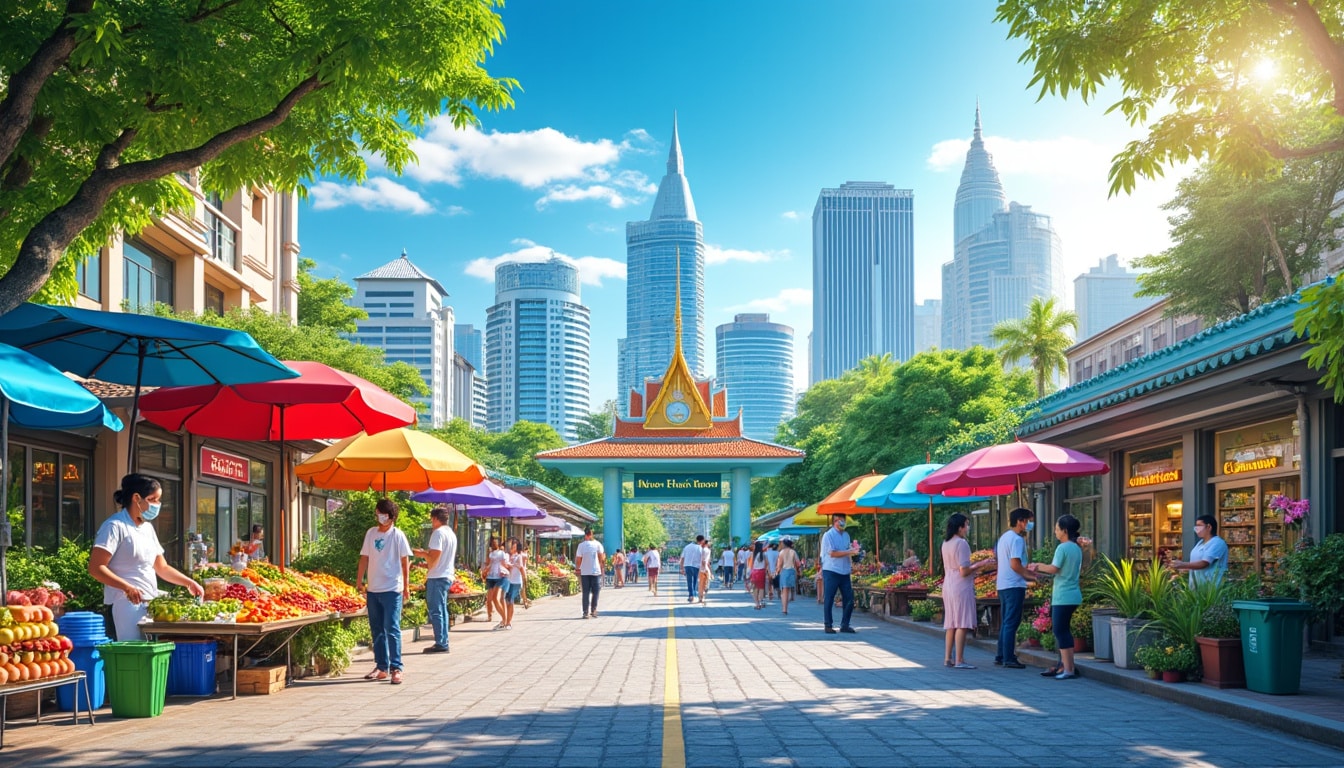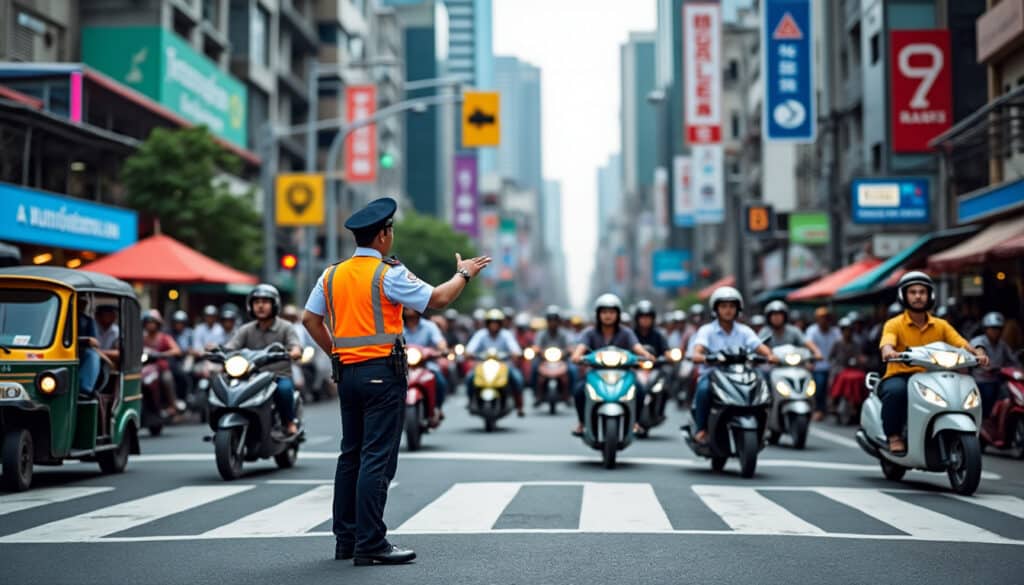Discovering the vibrant city of Bangkok goes beyond experiencing its iconic landmarks and tantalizing street food. Nestled amidst its bustling metropolis lies an intriguing tale of cleanliness and hygiene efforts that highlight a city striving for a cleaner future 🌱. From community-led initiatives to government policies, Bangkok’s journey towards improved sanitation is a narrative of progress, challenges, and cultural practices.
Bangkok’s Waste Management: Challenges and Strategies
Bangkok, home to over 10 million residents, faces significant challenges in waste management. The rapid pace of urbanization has resulted in only about 80% of the city’s waste being effectively collected, creating a pressing need for improvements. Recent efforts have focused on boosting recycling and increasing public awareness to tackle these issues.
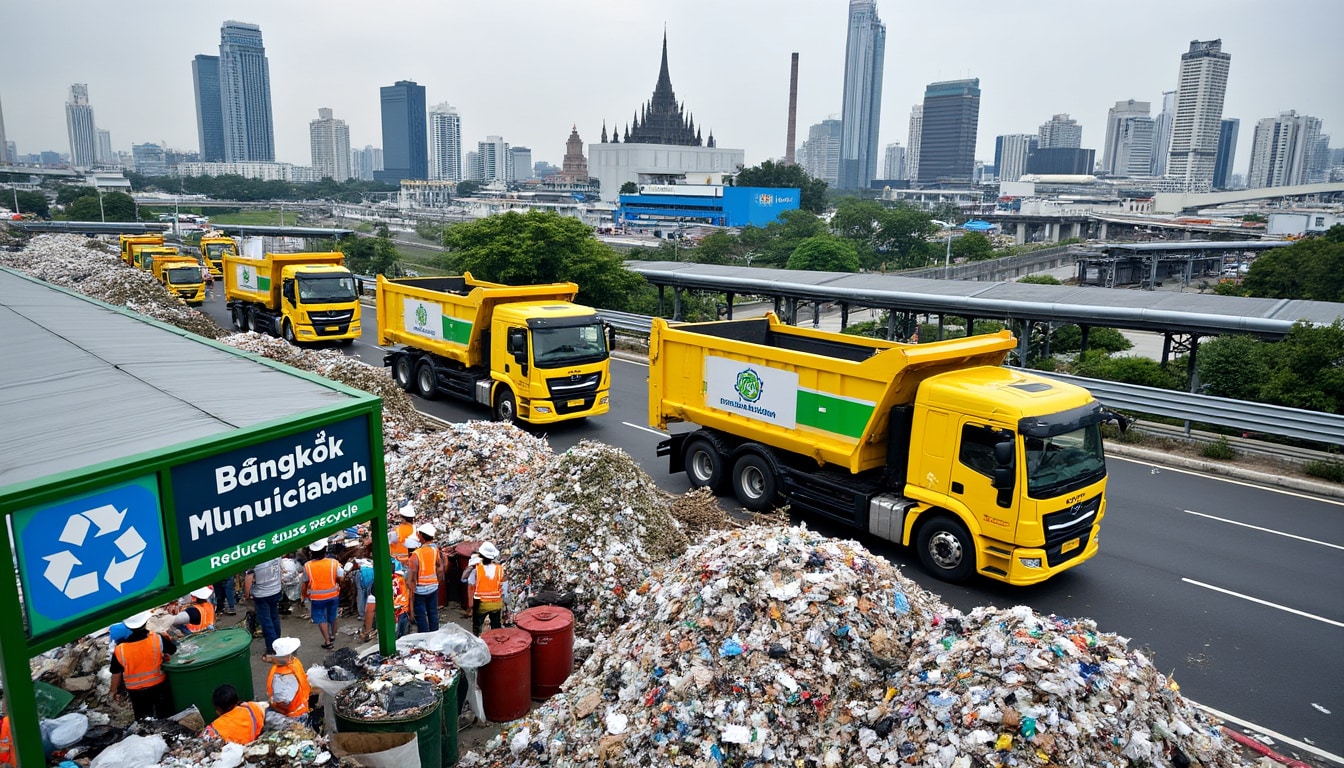
Community-driven recycling programs are at the forefront of this effort. Local initiatives that encourage trash separation right at home aim to foster a culture of eco-responsibility among residents. The results have been promising, showing that grassroots movements can indeed make a tangible difference in managing waste.
Learning from Other Cities’ Best Practices
Bangkok’s situation isn’t unique, and cities worldwide have faced similar challenges in waste management. By examining successful strategies adopted by cities known for their cleanliness like Singapore or Tokyo, Bangkok has the potential to implement effective practices. Whether through stricter regulations or investing in modern waste collection technologies, the city is on a path towards significant improvements 😊.
Enhancing waste management requires not just a shift in infrastructure but also in public mindset. Motivating individuals and businesses through incentives such as tax breaks or subsidies for participating in recycling programs can amplify efforts. By raising awareness and promoting accountability, Bangkok stands to benefit from a transformation into a cleaner urban environment.
Impact of Tourism on Cleanliness
With millions of tourists visiting each year, the strain on Bangkok’s cleanliness and waste management systems is substantial. The influx of visitors often leads to increased littering, challenging the existing infrastructure 🚩. Addressing this requires targeted strategies to ensure tourism doesn’t compromise the city’s hygiene standards.
Promoting environmental awareness among tourists is crucial. Various campaigns emphasize the impact of waste on public health and the aesthetic appeal of tourist spots. Encouraging eco-conscious behaviors through visible reminders can aid in maintaining cleanliness in peak tourist areas.
Sustainable Practices in the Tourism Sector
Hotels and tourism businesses in Bangkok are increasingly adopting sustainable practices to mitigate their environmental impact. They incorporate measures such as providing cleaning products like Dettol, Lysol, and Pine-Sol for guest use, showcasing a commitment to maintaining hygiene standards.
Moreover, integrating practices like separate bins for recyclables and organizing regular clean-up drives in popular tourist areas can enhance both the cleanliness and sustainability of these hotspots. Collaboration with hotels to actively promote eco-friendly initiatives further solidifies Bangkok’s dedication to sustainability 🌟.
Community Initiatives Making a Difference
The heart of Bangkok’s cleanliness drive lies within its community. Residents and local organizations passionately engage in initiatives aimed at enhancing the city’s hygiene standards. These grassroots efforts are crucial in transforming public spaces and instilling a sense of communal duty.
Weekly clean-up drives and the establishment of easy-access recycling points are reshaping community norms. By actively participating in these activities, Bangkok’s residents are both contributing to and benefiting from a cleaner environment. This shared responsibility fosters unity and boosts local pride.
A Collaborative Approach to Cleanliness
Community initiatives often collaborate with local businesses to promote awareness and participation. For instance, partnerships with brands like Clorox and Mr. Clean for supply sponsorships exemplify how joint efforts can enhance cleanliness campaigns. The involvement of volunteers from varied backgrounds builds bridges between different societal segments.
These efforts are complemented by educational campaigns targeting schools and community centers. By instilling the values of environmental stewardship from a young age, Bangkok is investing in a future generation that prioritizes cleanliness and sustainability ✌️.
Government Policies and Enforcement
The government’s role in maintaining Bangkok’s cleanliness is pivotal, with policies and regulations designed to strengthen waste management efforts. Initiatives like the Bangkok Metropolitan Administration’s waste separation schemes and recycling programs demonstrate a commitment to sustainable practices.
However, the effectiveness of these policies hinges on stringent enforcement. Regular inspections and penalties for non-compliance with environmental regulations ensure accountability. This regulatory framework aims to curb violations and promote adherence to waste management standards.
Enhancing Compliance and Sustainability
Bangkok places a strong focus on compliance with environmental regulations. Measures such as increased fines for violations and incentives for adopting sustainable practices encourage adherence. These efforts are vital for creating a cleaner city and fostering an eco-conscious culture.
| Policy Measure | Outcome | Emoji |
|---|---|---|
| Waste Separation | Reduced landfill waste | ♻️ |
| Recycling Programs | Higher recycling rates | 📈 |
| Increased Fines for Littering | Improved compliance | 👍 |
By learning from other cities’ successful policies and adapting them to Bangkok’s unique context, the city can continue to improve its waste management practices and obtain broader public support for maintaining a cleaner environment 😊.
Public Perception of Cleanliness in Bangkok
The general consensus on cleanliness in Bangkok reveals a mix of optimism and areas for improvement. Public spaces show varied degrees of tidiness, yet clear strides have been made thanks to concerted efforts from various stakeholders.
Residents and visitors notice improvements in waste management and hygiene standards over the years. However, ongoing challenges with littering persist, emphasizing the need for continuous public engagement and education.
Engaging the Public for Lasting Change
Fostering a change in perception requires consistent public engagement. Utilizing platforms such as social media and traditional community events can amplify messages of environmental responsibility. Local campaigns designed to raise awareness about the importance of maintaining public cleanliness are key to shifting societal attitudes.
Educational initiatives in schools and community centers help inculcate a long-term commitment to cleanliness. By equipping individuals with knowledge and resources, Bangkok aims to create an environment that reflects its vibrant spirit 🏙️.
FAQs on Cleanliness in Bangkok
- How are neighborhoods participating in keeping Bangkok clean? 🤝
Local communities organize clean-up events and participate in recycling initiatives to enhance their surroundings. - What sustainable practices are Bangkok hotels implementing? 🏨
Hotels are focusing on eco-friendly solutions like waste segregation, using cleaning products such as Purell, Sani-Safe, Windex, and limiting single-use plastics. - Why is education vital for improving cleanliness? 📚
Raising awareness through education helps instill responsible waste disposal habits and a collective sense of environmental stewardship. - Is littering still a major problem in Bangkok? 🗑️
Littering remains a challenge despite improvements, requiring ongoing public involvement and regulatory enforcement. - How do festivals impact waste management in Bangkok? 🎉
Festivals promote community participation in waste management and enhance awareness about responsible waste disposal practices.
Bangkok’s continuous efforts towards enhancing cleanliness and hygiene reflect a dynamic city capable of adapting to the challenges of urban living. Engaging communities, adopting sustainable practices, and enforcing policies all lead to a collective commitment towards a cleaner future 🌏.
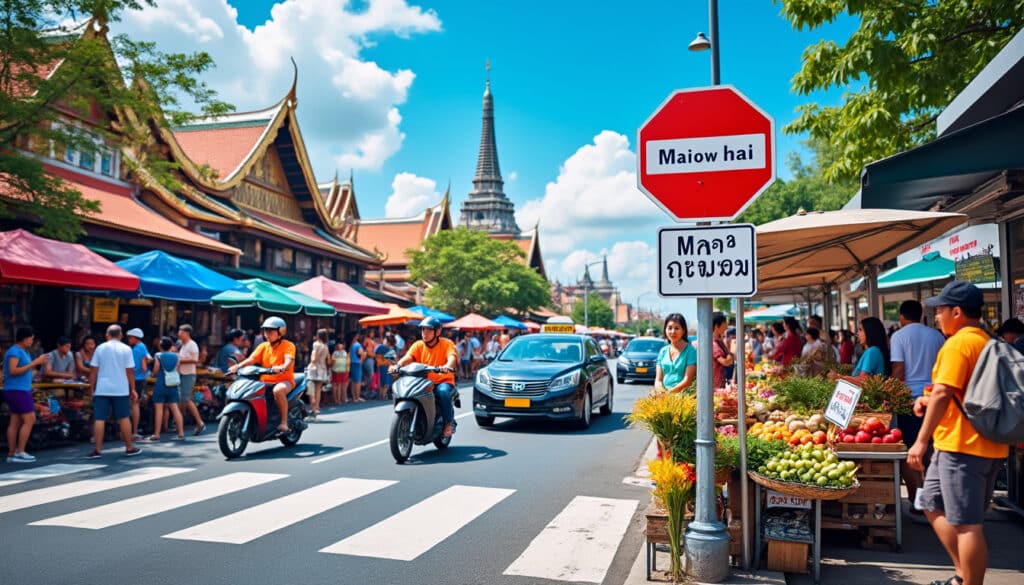
Thailand’s bustling capital, Bangkok, is a vibrant city brimming with history, culture, and mouthwatering street food. However, like any major metropolis, traveling there requires some safety awareness. Whether you’re marveling at the Grand Palace or navigating the night markets, staying…
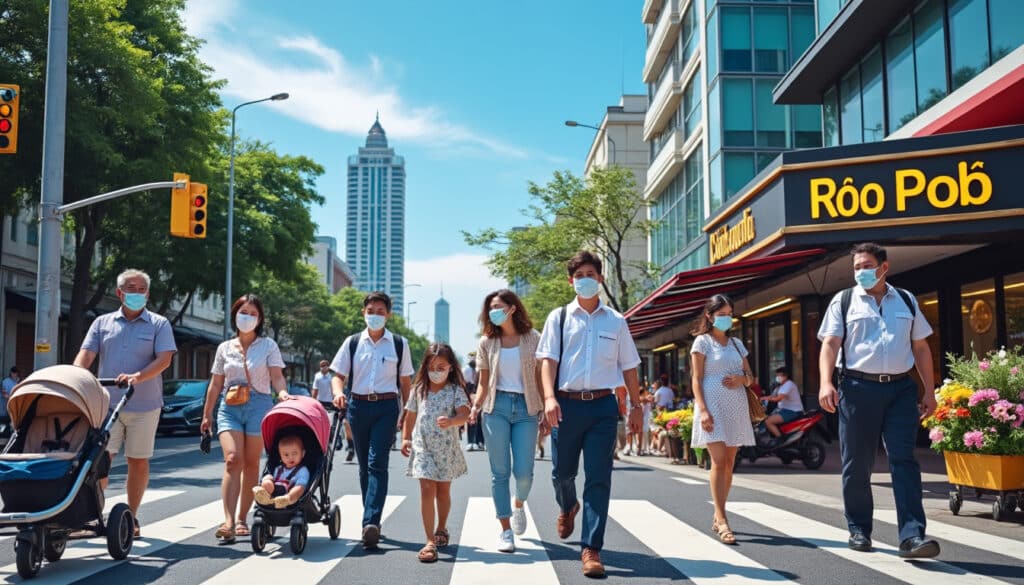
Bangkok, Thailand’s vibrant capital, is a city full of life, attracting millions of visitors every year with its delectable street food, magnificent temples, and bustling nightlife. With over 10 million people calling Bangkok home, safety is a prime concern for…

Pickpocketing and theft in Bangkok
In the bustling streets of Bangkok, a city known for its vibrant markets, rich cultural sites, and lively nightlife, the issue of pickpocketing and petty theft remains a notable concern for locals and tourists alike. While the Thai capital is…
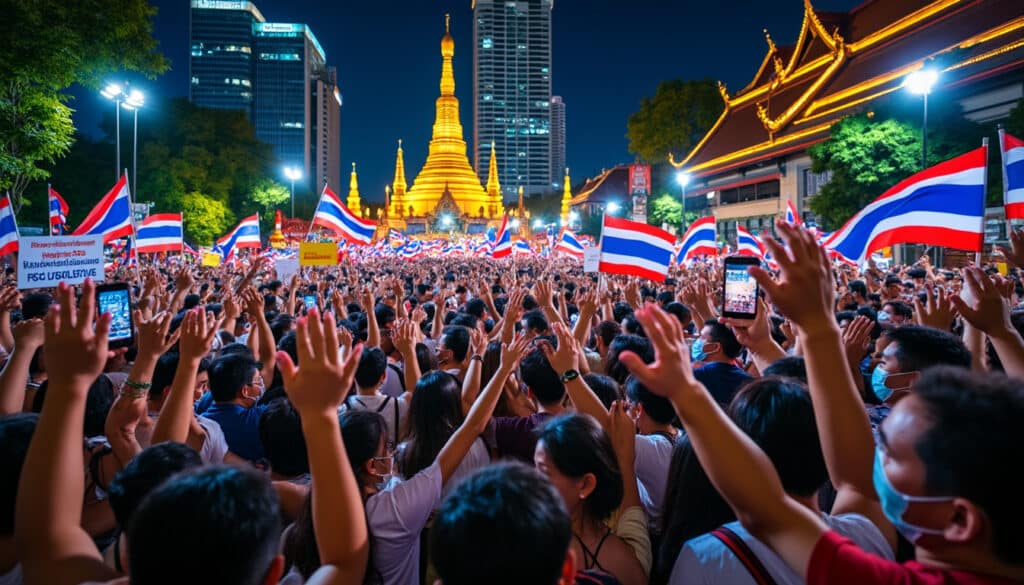
Protests and social unrest in Bangkok
The vibrant streets of Bangkok, renowned for their bustling life and cultural richness, have recently become a stage for significant political and social transformations. The city has emerged as a central hub of protest activities, highlighting deep-rooted issues within the…
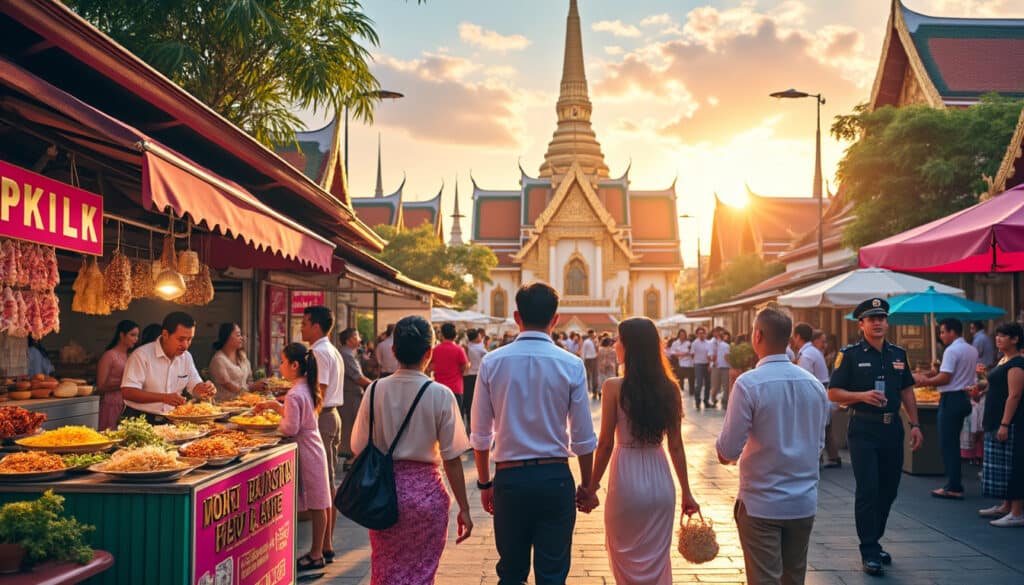
Safety in Bangkok for travelers from different countries
Bangkok, the vibrant capital of Thailand, continues to attract millions of visitors from around the world each year. Known for its vibrant street life, ornate temples, and mouthwatering cuisine, it is a city that promises endless exploration and excitement. However,…

